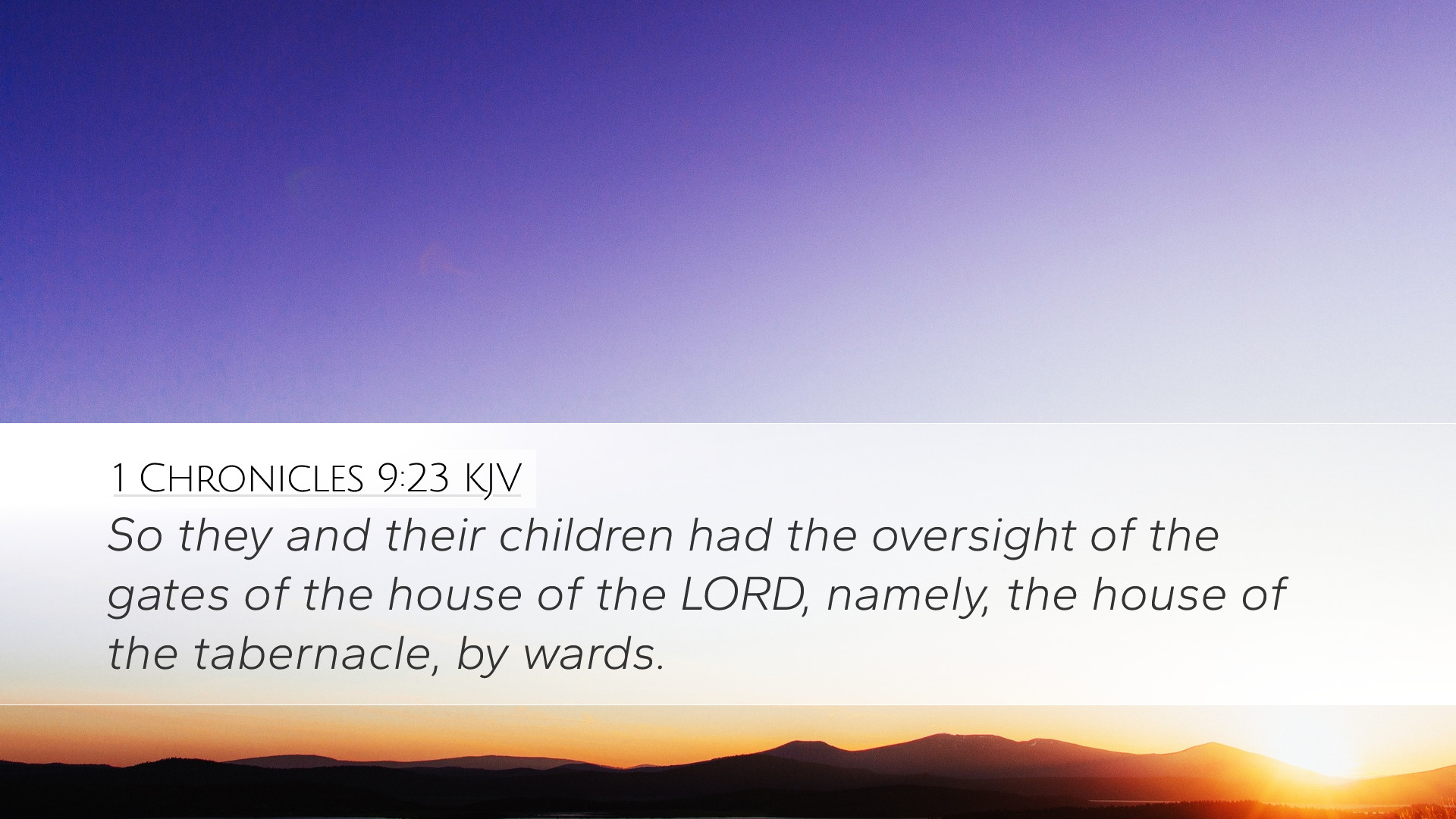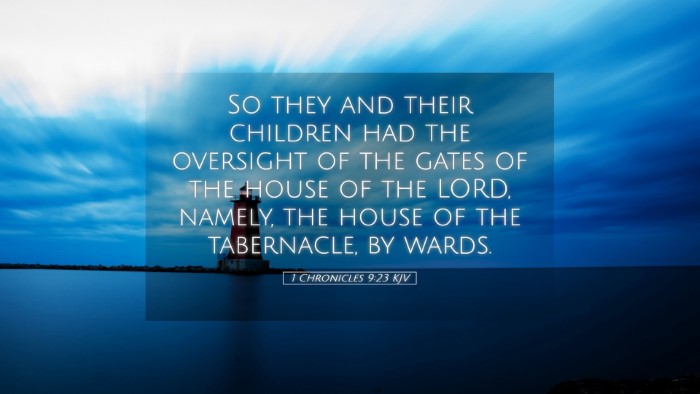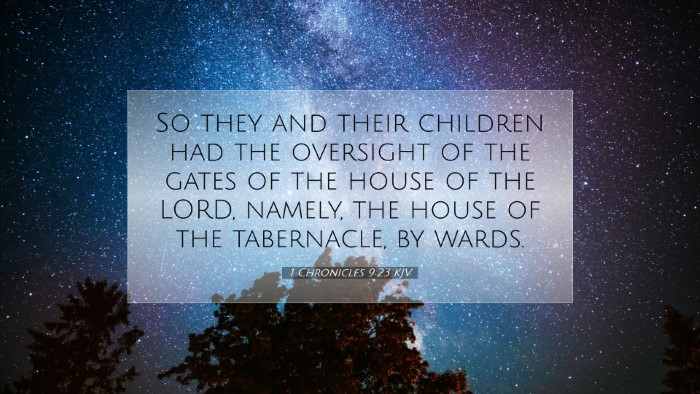1 Chronicles 9:23 Commentary
Verse: “So they and their children had charge of the gates of the house of the Lord, namely, the house of the tabernacle, by wards.”
Introduction
The verse in 1 Chronicles 9:23 signifies an essential aspect of temple worship and the responsibilities associated with it.
It highlights the roles assigned to the gatekeepers of the temple, underscoring their significance in maintaining the sanctity and order within the house of the Lord.
The insights drawn from prominent public domain commentaries, including those by Matthew Henry, Albert Barnes, and Adam Clarke, help illuminate the meaning and implications of this passage.
Historical Context
Matthew Henry provides a background of the conditions surrounding the establishment of the gatekeepers.
Following the Babylonian exile, there was a concerted effort to restore the temple and its worship practices.
The returnees from exile recognized the need for order in worship, which included the appointment of dedicated individuals to oversee the temple's entrances.
The Role of Gatekeepers
Gatekeepers (or doorkeepers) in the Old Testament were not mere guards but held a significant spiritual role within the temple.
Albert Barnes remarks that their responsibilities included ensuring that only the ritually clean entered the holy place and safeguarding the sanctity of the tabernacle or temple.
They stood as the first line of defense against unworthy entries.
Theological Implications
The appointment of gatekeepers signifies a broader theological truth regarding God's desire for order in worship.
Adam Clarke observes that such structured roles remind us that worship in the house of God is to be carried out with reverence and intentionality.
These roles remind believers today of the importance of dedicating oneself to the service of the Lord in various capacities.
Functionality of Worship
The gatekeepers' tasks illustrate essential aspects of functionality within the worship community.
- Preservation of Holiness: They ensured that the sacred spaces remained pure, reflecting God's holiness.
- Facilitation of Worship: By managing access, they allowed for an organized and respectful worship environment.
- Symbolism of Access to God: Their position symbolized the access believers have to God; however, it required reverence and acknowledgment of God’s holiness.
Children of Gatekeepers
The reference to their children suggests a legacy of service to God.
Matthew Henry points out that this tradition highlights the importance of passing down the responsibilities of worship and service within families.
It emphasizes a community's role in training the next generation to honor and serve God.
Application for the Church Today
The church can draw several lessons from the gatekeepers' duties:
- Responsibility in Service: Every member of the church has a role to play, contributing to the overall worship experience.
- Generational Faithfulness: Teaching the next generation about service and worship is vital for maintaining a faithful community.
- Holiness in Worship: Maintaining reverence in worship is still an essential calling for today’s believers, paralleling the role of the gatekeepers.
Conclusion
1 Chronicles 9:23 serves as a poignant reminder that worship needs structure, reverence, and a sense of duty among believers.
Insights from Matthew Henry, Albert Barnes, and Adam Clarke offer a comprehensive understanding that extends beyond mere historical context to practical application in today’s church.
The legacy of the gatekeepers invites us to reflect on our commitment to God and the roles we fulfill in our communities of faith.


